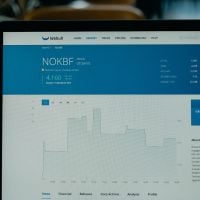Deadline: 31 March 2020
The European Union (EU) is seeking proposals to support civil society in the protection and promotion of democracy, human rights and fundamental freedoms around the world.
The present call for proposals has the specific objective of strengthening the contribution of civil society to good governance of the Chadian land domain through, among other things, the collection of data at community level for the purposes of investigation / early warning of compliance. of human rights, monitoring of possible abuses / violations of rights, its participation in improving the legal framework. To this end, a peer-to-peer approach between civil society organizations (national and international) which carry out similar work is encouraged.
Priority Areas
The priorities of this call for proposals are as follows:
- strengthen organizations that monitor local land rights and fight the phenomenon of land grabbing;
- strengthen the mechanisms for investigation and early warning of the phenomenon of illegal land grabbing in order to curb its progression;
- strengthen organizations that review and monitor the proper application of land law and promote transparency and accountability in the land transfer process, including:
- by encouraging the mobilization and participation of citizens in public land management at national and subnational levels, giving priority to measures which aim to improve, in particular, the participation of disadvantaged and / or under-represented groups, such as poor households, women, youth and people with disabilities, through the creation of an enabling environment for their participation;
- by raising awareness among the entire population of the importance of the problem, and by informing stakeholders of the existing legal framework;
- by providing direct support to victims of violations to enable them to obtain justice and reparation.
- strengthen organizations that promote accountability and / or help prevent and combat the phenomenon of illegal land grabbing, including by:
- facilitating the mobilization of civil society actors who demand a reaction and reforms on the part of the government, for example access, in due time, to transparent information, as well as credible and effective sanctions against ” possible cases of improper land grabbing;
- monitoring and defending the effective and impartial application of the rule of law, including the enforcement of administrative and criminal sanctions, with regard to anti-corruption measures;
- by strengthening capacities and developing skills and capacities for networking in order to facilitate collaboration between local and regional change agents and watch organizations with similar mandates;
- improving the capacity of the media to investigate and cover cases of land grabbing as well as collaboration with civil society and other agents of change.
- promote the use of new technologies in monitoring compliance with land legislation by strengthening the capacities of NGOs to use digital tools.
Funding Information
Any grant requested under this call for proposals must be between the following minimum and maximum amounts:
- minimum amount: 300,000 EUR
- maximum amount: 390,000 EUR
Eligibility Criteria
Eligibility of applicants (lead applicant and co-applicants)
Lead Applicant(s)
- To qualify for a grant, the lead applicant must:
- be a legal person or an entity without legal personality, or a natural person and;
- have no profit and belong to one of the following categories of organizations: non-governmental organization, CSO and;
- be established in an ACP country, in a Member State of the European Union, in a country benefiting from the Instrument for Pre-Accession Assistance, in a Member State of the European Economic Area, in a country or territory of overseas, in a developing country or territory, on the list of ODA recipients drawn up by the OECD DAC, who are not members of the G20, without prejudice to the status of the Republic of Africa South, governed by Protocol 3 to the Partnership Agreement, in a country for which the Commission has adopted a decision approving the request for reciprocal access to external aid in agreement with the ACP countries, in a Member State of the OECD, in the case of contracts executed exclusively in a least developed country (LDC) or in a heavily indebted poor country (HIPC);
- be directly responsible for the preparation and management of the action with the co-applicant (s) and the affiliated entity or entities, and not act as an intermediary.
- The lead applicant can act either individually or with one or more co-applicants. The lead applicant whose place of establishment is not Chad must act with at least one co-applicant established in Chad.
Co-applicant(s)
- The co-applicants participate in the development and implementation of the action, and the costs they bear are eligible in the same way as those borne by the lead applicant.
- Co-applicants must meet the same eligibility criteria as those which apply to the lead applicant himself.
- If the grant is awarded to them, any co-applicants become beneficiaries under the action (with the coordinator).
Affiliated Entities
- The lead applicant and his co-applicant (s) may act with one or more affiliated entities.
- Only the following entities can be considered affiliated with the lead applicant and / or the co-applicant (s):
- Only entities that have a structural link with the applicants (the lead applicant or a co-applicant), in particular a legal or capital link.
- This structural link mainly encompasses two concepts:
- control, within the meaning of Directive 2013/34 / EU relating to annual financial statements, consolidated financial statements and related reports of certain types of business:
- The entities affiliated to an applicant can therefore be:
- entities controlled directly or indirectly by the applicant (subsidiaries or first-tier subsidiaries) or controlled by an entity itself controlled by the applicant (sub-subsidiaries or second-level subsidiaries), and this is valid for the other levels of control;
- entities directly or indirectly controlling the applicant (parent companies). Likewise, they can be entities controlling an entity controlling the applicant;
- entities controlled, directly or indirectly, at the same level as the applicant (sister companies).
- The entities affiliated to an applicant can therefore be:
- membership, i.e. the applicant is legally defined as, for example, a network, federation or association of which the proposed affiliated entity is a member, or the applicant is a member of the same entity ( for example, a network, a federation or an association,…) that the proposed affiliated entity.
- control, within the meaning of Directive 2013/34 / EU relating to annual financial statements, consolidated financial statements and related reports of certain types of business:
How to Apply
- The application procedure consists of two phases:
- Concept notes
- Full applications
- The concept note together with the declaration by the lead applicant must be submitted at the address given on the website.
For more information, visit https://bit.ly/38pfN3x and download the guidelines.









































